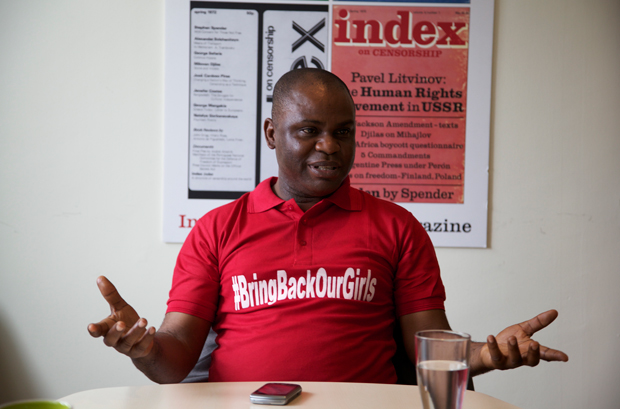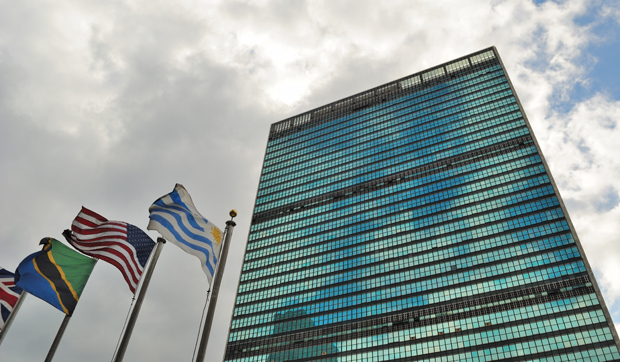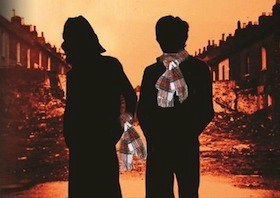30 May 2014 | About Index, Campaigns
Index reiterates its concern at the ruling on the so-called “right to be forgotten” and its implications for free speech and access to information. Index urges the court to put a stay on its ruling while it pursues a regulatory framework that will provide legal oversight, an appeals process and ensure that private corporations are not the arbiters of public information.
While it is clearly understandable that individuals should want to be able to control their online presence, the court’s ruling fails to offer sufficient checks and balances to ensure that a desire to alter search requests so that they reflect a more “accurate” profile does not simply become a mechanism for censorship and whitewashing of history.
Issued without a clearly defined structure to police the requests, the court ruling has outsourced what should be the responsibility of publicly accountable bodies to private corporations who are under no obligations to protect human rights or act in public interest. Index will be monitoring very closely the processes and procedures used by Google and others to make decisions.
Although Google has devised an advisory committee to support its decision-making, the fact remains that we are in a situation in which search engines will be making decisions about what is deemed “irrelevant and inappropriate” – and a situation that fails to take into account the fact that information deemed “irrelevant” now may become extremely relevant in future.
Index urges the court to go back and reconsider its directions to search engines. It must devise a clear structure for managing requests that balances the public’s right to information, freedom of expression and privacy rights.
For more information call: +44 (0) 207 260 2660
****
Both Google and the European Union are funders of Index on Censorship
30 May 2014 | News and features, Nigeria, Religion and Culture

Rommy Mom (Photo: Sean Gallagher/Index on Censorship)
The wording of Nigeria’s recent anti-gay marriage law is misleading and has provoked a spike in hate crime towards the homosexual community, according to leading human rights lawyer Rommy Mom. The Same Sex Marriage Prohibition Act 2013, which is yet to be published since it was signed into law by President Goodluck Jonathan in January, outlaws gay marriage and relationships. It also makes it illegal for gay people to hold meetings, and outlaws the registration of homosexual clubs, organisations and associations. Those found to be participating in such acts face up to 14 years in jail.
Mom, who was nominated for the Index Freedom of Expression Advocacy Award for his work with Lawyers Alert, visited the Index office to speak about the current situation in Nigeria and the problems facing the LGBT community. “When the title is ‘Same Sex Marriage’ it’s not something many people are able to wrap their heads around…what it has done is to stir up some hate crimes against persons of different sexual preferences,” explained Mom. At the same time, the public are failing to take note of the other implications of the law to homosexuals hidden behind the title.
Mom referred to an attack on a group of at least half a dozen young men in a village on the outskirts of capital Abuja recently after the law was passed. The men, dragged from their homes in the middle of the night by villagers, were assaulted and battered, before the local police detained them. “We have a constitution where people are innocent until proven guilty,” Mom told Index, but that wasn’t the case here, and hasn’t been in many other recent cases.
But why has one word — “marriage” — resulted in an increase in violent crimes against the LGBT community? As Mom explained, the idea of same-sex marriage is a very Western notion (although, as he pointed out, only 19 states in America have legalised the act of civil unions) and is something the Nigerian people are uncomfortable with.
While same-sex marriage was not legal prior to the law coming into force, in some Nigerian cultures, including that of the Igbo people, women have been marrying other women for centuries for the benefit of their husbands — be it for economic or reproductive reasons. “It’s a situation that before now wasn’t there. Sexual differences have always been with us in Nigeria, we’ve lived with it and we’ve accepted it. It might come with some social stigma but people were not going out of their way to want to harm [homosexuals] or to incite hate,” Mom said.
“People have died because someone has labelled them a lesbian or a gay. But that’s what the law has cost in Nigeria.”
This article was originally posted on May 30, 2014 at indexoncensorship.org
30 May 2014 | News and features, Politics and Society, United Nations

In a discretion well known to diplomatic circles, the United Nations so-called Committee on NGOs is meeting in New York this week. It is to select which NGOs fit the institution. The 19-member body’s aim could be to ensure a high-level and quality participation of independent NGOs to the United Nations – it is instead the 21st century censorship bureau.
Any governmental institution has to establish mechanisms by which participation of external organisations and lobbyists is regulated. The role of the Committee on NGOs of the United Nations is to look into applications of NGOs from all around the world. It is supposed to assess, case by case, whether the applicant NGO respects the Charter of the United Nations and abides by basic principles such as non-violence and democracy.
We know how much civil society has contributed to the development of the United Nations as such, and has been a force in pushing States to adopt a set of internationally binding standards to protect human rights and so many other issues. Access to the international bodies allowed NGOs to have a direct and formal input into the discussions. Unlike lobbyists at parliaments, representatives of NGOs can officially participate in the debates at the United Nations Human Rights Council. No need to be invited by an official or find strategies to get in contact with decision-makers. The access guaranteed to independent civil society, representing values and principles, not financial interests, is at the very core of the United Nations and a consequence of the organisation recognising it would be nothing if it had to count only on States to build itself and its standards up.
Some of those States are indeed the ones most willing to silence critical NGOs.
Throughout the globe, NGOs are fighting more and more for their own space in society, for their ability to work and defend victims of human rights violations. The work used to be all about those who loose their lives working as slaves, those who end up behind bars because of their beliefs, their engagement or their sexuality, those who loose their houses because from a day to another a ruler wants the land or a country believes it has the absolute right over it. Human rights defenders used to give body and soul to those people, and to so many others. Now, we need to include that we need to challenge governments shrinking the ability of those fighting for rights – human rights defenders need more and more to fight for themselves and their own space.
The United Nations should be an arena of dialogue aspiring to protect victims and promote peace. To do so, various voices are needed at the table. However, those who shrink space for civil society at home certainly do not want to see them at the table in New York or Geneva, or at any other international forum for that matter.
Along with inter alia Cuba, Pakistan and Venezuela, China and Russia are long-standing members of the Committee of NGOs. Both can proudly wear a label of censorship. Following President Vladimir Putin’s third election in March 2012, the country is undergoing a wave a repression and has adopted some of the most draconian laws against independent civil society. Dissenting with the Chinese regime is at the cost of one’s life, safety and integrity. The same behaviour is being observed by China and Russia at the Committee on NGOs – the institution is its tool to repress those the countries’ leadership do not agree with. And the consequences are grave. As world powers and permanent members of the Security Council, the two countries are already immune to critics within the UN on their rights record. The repression against political activists, human rights defenders and their NGOs, should have brought both countries to the centre of debates at the Human Rights Council and the General Assembly. It did not because they effectively prevents critics from getting into the room. Other States are now following the same strategy; one cannot believe that Azerbaijan, which will become a member of the Committee in 2015, shows a genuine interest in NGO participation in the international debate when it jails those who want to monitor the public life in Azerbaijan, such as the leader of the country’s only independent election monitoring group Anar Mammadli.
Member States of the Eastern European Group in the United Nations (the geographical groups are one of the legacies of the post world war era) should have run against Azerbaijan and Russia. Many of those Eastern Europe States are within the European Union. The Union was a step behind others by omitting to see that its willingness to promote rights and democracy in its direct neighbourhood will be affected by leaving a censorship tool in the hands of people who enjoy it.
Western countries have on their side left Turkey run unopposed for the Committee. The country has singled itself out recently, from all members of the Western European and Others Group, in blocking access to social media, especially Twitter. The single fact that a leader believes the power held in his hands allows him to block freedom of expression on the media of one’s choice should imply that that leader’s government is not to participate in the selection of civil society organisations participating in shaping the international arena.
Within the protected compound of the United Nations in Manhattan, the Committee on NGOs is this week looking into accepting those NGOs nobody will oppose, whilst blocking those NGOs publicly and forcefully engaging for human rights, including rights of people belonging to minorities or espousing minority beliefs. States should stand up for the space for critical NGOs. They might have the numbers and if they do not they are on the honourable side trying to support those NGOs that deserve to be at the United Nations. There is no shame in losing against censors – there is one in not trying to oppose them.
This article was posted on May 30, 2014 at indexoncensorship.org
30 May 2014 | News and features, Religion and Culture, United Kingdom
 For the last two decades the stubborn, powerful myth that the creative arts and the Protestant working class in Northern Ireland do not go together has been regularly proclaimed.
For the last two decades the stubborn, powerful myth that the creative arts and the Protestant working class in Northern Ireland do not go together has been regularly proclaimed.
Closer reading reveals a plethora of Protestant dramatists including, but not limited to: Sam Thompson, Stewart Parker, Ron Hutchinson, Christina Reid, Graham Reid, Marie Jones, and Gary Mitchell. This is of course a typically unfortunate sectarian head-count, but a necessary one in light of matter-of-fact declarations from Irish Republicans that Ulster Protestants have ‘no culture’, and – perhaps more damagingly – the identical conviction of a large number of working class Protestants themselves.
With this is mind it is worth distinguishing between ‘loyalist’ and ‘Protestant working class’ voices. The phrases have become interchangeable (despite the way the Protestant electorate has long given loyalists the cold shoulder), and many local and international commentators in the media and academia continue to refuse the distinction. On the other hand, with the exception of the lively 1982 community play This is It!, loyalists are indeed without any real lineage in the theatre.
It is therefore vital that Ulster loyalists take their place on the stage, a process which began on 1 May when Bobby Niblock’s play Tartan opened in East Belfast’s Skainos Centre before going on to close the city’s Cathedral Quarter Arts Festival. A production of the recently-formed Et Cetera theatre company, this was an avowedly loyalist exercise in the sense that Niblock is an ex-prisoner depicting one of its stories. Initially the Tartans fought other gangs from within the same community but many went on to join loyalist paramilitary groups, a difference and tension the play explores.
At an Index on Censorship symposium held in the University of Ulster’s Belfast campus on 3 May, I was charged with leading one of four breakout sessions exploring why loyalist voices are under-represented in the theatre. The challenge facing the Et Cetera group was brought home when only one person from this comfortable set showed up, perfectly encapsulating part the problem. The one major complaint of loyalists in post-Troubles Northern Ireland is that their voice is simply ignored. I was initially apprehensive about spearheading a discussion even mentioning ‘loyalism’, as it is now a pejorative term of abuse. The way the conference attendees reacted typically reflects the complete unwillingness to engage with this disillusioned section.
Many loyalists have hitherto been convinced that the best way they can make their voices heard is to block roads and intimidate. They feel the ‘peace process dividend’ has nothing to offer them, while report after report pitches the Protestant working class male right at the bottom of the educational attainment table (only just in front of Irish traveller and Gypsy/Roma, according to the latest Peace Monitoring Report). These are the men who find themselves languishing in the back of police vans and holding cells at the end of an evening of rioting, as well as being the first target for the paramilitaries.
No-one would be so naïve as to believe that a play alone could stop violence, but seeing a play – like all art – can soften human beings as well as advance understanding. The late Seamus Heaney once said of his own medium that ‘It can eventually make new feelings, or feelings about feelings, happen’, and the creative process often leads to self-examination. In Tartan two young men reflect while they assemble a crate of petrol bombs: it’s their future they’re on the verge of hurling away along with the incendiaries. A diversity of viewpoints are similarly on show. Some of the boys are already hard-liners; others remind us that most Catholics don’t support the IRA. While empathetic to its young, exploited protagonists, it is also upfront about their mistakes and prejudices.
Tartan has flaws – including a noticeably stronger second half – but it is one hell of an opening salvo. The energy of these young males reverberates off the stage, giving speech and form to a violence which continues to scar the North’s streets, as well as highlighting the essence of the Et Cetera group itself: as an outlet for new stories and energies previously untapped.
The dangers of a loyalist underclass are unlikely to be apparent to an English or international audience. They remain rather less deadly than dissident republicans, but Tartan’s relevance – anchored in the perspective of misled young Protestant men – becomes especially resonant in the wake of the increased recruiting and activities of the most serious loyalist paramilitaries.
The Man Who Swallowed a Dictionary, a play about David Ervine – another ex-prisoner who died prematurely of a heart attack in January 2007 – is Niblock’s follow-up project. Earning this (provisional) title in real life for being articulate in a culture which does not value articulacy, Ervine served his sentence in the same prison as Niblock and had represented one of the few political voices for disempowered loyalists. The loss was enormous, but the return of this voice is next.
This article was originally posted on May 30, 2014 at indexoncensorship.org



 For the last two decades the stubborn, powerful myth that the creative arts and the Protestant working class in Northern Ireland do not go together has been regularly proclaimed.
For the last two decades the stubborn, powerful myth that the creative arts and the Protestant working class in Northern Ireland do not go together has been regularly proclaimed.